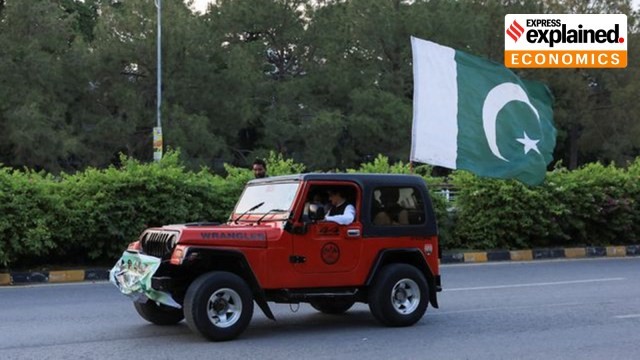Extended Fund Facility (EFF)

- 16 May 2025
In News:
Recently, the IMF Executive Board approved a $1 billion disbursement to Pakistan under the Extended Fund Facility (EFF). This brings total disbursements under the current EFF arrangement to $2.1 billion out of a total planned support of $7 billion.
What is the Extended Fund Facility (EFF)?
- Governed by: International Monetary Fund (IMF), part of the Bretton Woods Institutions.
- Purpose: To support countries facing medium-term balance of payments problems caused by structural economic weaknesses.
- Nature of Support:Loan (not a grant or aid), with extended repayment periods.
- Tenure: Typically spans over three or more years, with phased disbursements.
- Objective: Enables countries to implement structural reforms such as:
- Broadening the tax base
- Strengthening financial institutions
- Reducing fiscal deficits
- Managing inflation
Eligibility for EFF:
To qualify, countries must:
- Exhibit persistent balance of payments stress
- Have deep-rooted economic weaknesses (e.g., poor governance, low investment, weak tax systems)
- Show a willingness to undertake IMF-monitored reforms
Pakistan’s Economic Situation:
- Stagnant GDP: Estimated at $338 billion in 2023, lower than in 2017.
- High Inflation: Averaging over 20% between 2020–2024.
- Frequent Borrowing: Pakistan has received 28 IMF loans in 35 years, and also borrows from:
- China
- UAE and Saudi Arabia
- ADB, IDB, Paris Club, Nordic Development Fund
Key Challenges:
- Economic mismanagement
- Low savings and investment
- Infrastructure gaps
- Low female workforce participation
- High population growth
Why Did IMF Approve the 2025 Tranche?
The IMF approved the tranche based on positive macroeconomic developments:
- Reduced inflation: Down to 0.3% in April 2025
- Improved forex reserves
- Fiscal reforms: Implementation of the FY2025 budget and Agricultural Income Tax
- Credible reform measures: IMF noted Pakistan’s “significant progress” in restoring economic stability.
